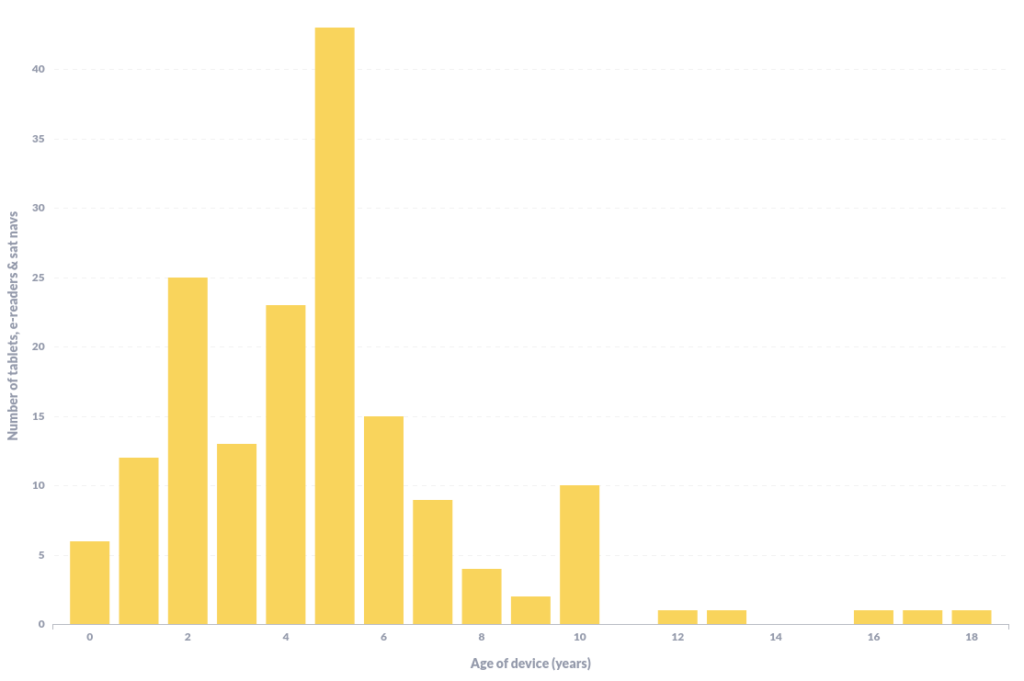We are very happy to announce the release of a new update to the Open Repair Data Standard (ORDS) – v0.3. Following learnings from further use of the Open Repair Alliance data in policy work, and work with partners, this update adds estimated product ages and unique IDs for product categories to the standard.
What is ORDS?
The Open Repair Data Standard is a key part of the Open Repair Alliance’s effort to collect, share and analyse data on community repair of small electricals and electronics. Defining a standard way of structuring data allows us to combine data collected from community repair events happening all around the world. With this, we can look for global and local trends and patterns in our repair activity. This can help us make the case for a universal right to repair.
What’s new in v0.3 for the standard?
- Product age. Working with European policy partners, we’ve found that the estimated age of an item when its repair attempt took place is a key piece of policy information. It tells us specifically how long people are still willing to repair a product. This is a powerful argument in favour of extending support (availability of spare parts, software updates, repair information) by manufacturers. We have used product age in all of the Insights pages we’ve created so far. Previously we calculated the estimated product age from the ORA data for these insights, but going forwards we will include the estimated product age directly in the downloadable data.
- Product category IDs. We have given the product categories in ORDS unique identifiers, as an aid to people using the ORA data in other systems. For example, using the IDs will help to work with categories in different languages, while still referring to the same underlying thing.

What’s next?
We’re currently finishing off producing the 4th combined Open Repair Alliance dataset. This will include these new estimated product ages and product category IDs. We will be releasing this soon – look out for a blog post in the New Year with more details.
In 2022, we’ll be reviewing with all partners how we can improve the quality of the data we collect at source (not a simple task given the busy nature of community repair events!) Additionally, following ORA partner The Restart Project’s work looking into common faults of the things we repair – using citizen science on ORA data – we’ll be investigating further how fault types for key product categories could potentially be incorporated into the standard itself. Beyond this, we are collaborating with members of the Sharepair project developing a European Open Repair Data Platform – an exciting development that we look forward to seeing grow next year.
As always, we greatly value your feedback, and please get in touch if you would like to get involved with the work of the Open Repair Alliance.